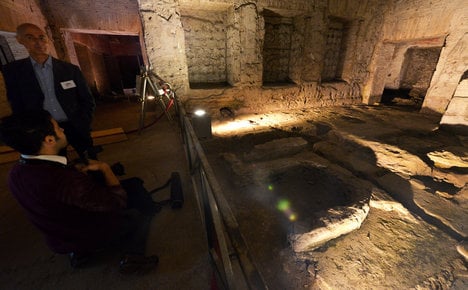The surprise find was made at Palazzo Canevari on the Quirinal Hill, not far from the city's Termini station, a site which was previously believed to have hosted an ancient cemetery, or necropolis, Corriere Della Sera reported.
“It's an exceptional find,” Francesco Prosperetti, the archaeological superintendent of Rome told the newspaper.
“It's one of the most important in the last ten years because it rewrites the history of Rome during the period it was ruled by kings. Scholars were previously debating if the area had been a place of worship filled with temples or a cemetery.”
The ruins are reportedly in exceptional condition and reveal a large ancient Roman home, or domus, measuring three-and-a-half by ten metres.
The dwelling features a rectangular floor plan, which was divided into two rooms and was probably accessed via a porch.
The home was built on a base of Roman tufa, a volcanic stone that is abundant in central Italy and which was used by ancient engineers to build all kinds of constructions, from homes to the Pantheon.
The dwelling once featured high wooden walls that were covered in clay plaster which were topped by a tile roof. The home would have been a plush crib for a wealthy member of the Roman elite.
This is not the first find to be made at Palazzo Canevari. Formerly the headquarters of the Italian Geological Institute, the building changed hands in 2003 and a series of archaeological surveys were conducted in the area.
Excavations carried out around the property in 2013 turned up a huge temple built by Roman kings.
Both of the finds date back to the initial period of the city – but definite records of Rome in this era do not exist.
After the latest find archaeologists are hoping the soils of the Eternal city will continue to turn up treasures that can help shed more light on the origins of Rome.



 Please whitelist us to continue reading.
Please whitelist us to continue reading.
Member comments